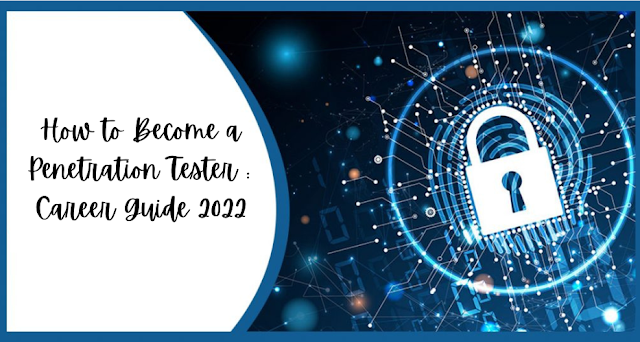Penetration testers, or pen testers for short, perform simulated cyberattacks on a company’s computer systems and networks. These authorized tests help identify security vulnerabilities and weaknesses before malicious hackers have the chance to exploit them.
A career as a pen tester often starts with an entry-level cybersecurity position. In this article, we’ll go into more detail about what penetration testers do, why this in-demand cybersecurity career could be a good fit for you, and how to get started.
As a penetration tester, you’ll take a proactive, offensive role in cybersecurity by performing attacks on a company’s existing digital systems. These tests might use a variety of hacking tools and techniques to find gaps that hackers could exploit. Throughout the process, you’ll document your actions in detail and create a report on what you did and how successful you were at breaching security protocols.
The day-to-day tasks of a pen tester will vary depending on the organization. Here are some common tasks and responsibilities you may encounter in this role, all pulled from real job listings:
Perform tests on applications, network devices, and cloud infrastructures
Design and conduct simulated social engineering attacks
Research and experiment with different types of attacks
Develop methodologies for penetration testing
Review code for security vulnerabilities
Reverse engineer malware or spam
Document security and compliance issues
Automate common testing techniques to improve efficiency
Write technical and executive reports
Communicate findings to both technical staff and executive leadership
Validate security improvements with additional testing
Penetration testers typically work in one of three environments.
In-house: As an in-house penetration tester, you work directly for a company or organization. This typically allows you to get to know the company’s security protocols well. You may also have more input into new security features and fixes.
Security firm: Some organizations hire an outside security firm to conduct penetration testing. Working for a security firm offers greater variety in the types of tests you’ll get to design and perform.
Freelance: Some penetration testers choose to work as freelancers. Choosing this path can give you greater flexibility in your schedule, but you may need to spend more time looking for clients early in your career.
As a penetration tester, you can earn a paycheck by legally hacking into security systems. It can be a fast-paced, exciting job if you have an interest in cybersecurity and problem solving. In this section, we’ll take a closer look at the steps you might take to get your first job as a penetration tester.
Penetration testers need a solid understanding of information technology (IT) and security systems in order to test them for vulnerabilities. Skills you might find on a pen tester job description include:
Network and application security
Programming languages, especially for scripting (Python, BASH, Java, Ruby, Perl)
Threat modeling
Linux, Windows, and MacOS environments
Security assessment tools
Pentest management platforms
Technical writing and documentation
Cryptography
Cloud architecture
Remote access technologies
One of the best ways to start developing the skills you’ll need as a penetration tester is to enroll in a specialized course or training program. With these types of programs, you can learn in a more structured environment while building multiple skills at once.
If you’re new to cybersecurity, consider an option like the penetration testing course , which includes an entire unit on penetration testing and incident response. The entire program is online and at your own pace, so you can learn job-ready skills while working or managing life’s other responsibilities.
Cybersecurity certifications demonstrate to recruiters and hiring managers that you have the skills required to succeed in the industry. In addition to these more general cybersecurity certifications, you can also get certified in penetration testing or ethical hacking. Reputable certifications to consider include:
Certified Ethical Hacker (CEH)
CompTIA PenTest+
GIAC Penetration Tester (GPEN)
GIAC Web Application Penetration Tester (GWAPT)
Offensive Security Certified Professional (OSCP)
Certified Penetration Tester (CPT)
Earning one of these certifications generally requires passing an exam. Besides earning a credential for your resume, preparing for a certification exam can often help you develop your skill set as well.
A career as a pen tester gives you the opportunity to apply your hacking skills for the greater good by helping organizations protect themselves from cyber criminals. It’s also an in-demand, high-paying career path.
Penetration tester salary
Penetration testers in the US make an average salary of $102,405, according to Glassdoor in November 2021 . Your salary will depend on a variety of factors, including your location, experience, education, and certifications. Some industries, like financial services and military contracting, tend to pay higher salaries than others.
Job outlook
The US Bureau of Labor Statistics projects 33 percent job growth for information security analysts, including penetration testers, between 2020 and 2030 . This is much faster than the average for all occupations in the US.
Career path for penetration testers
As you gain experience as a penetration tester, you may advance to lead a pen testing team. Some penetration testers go on to become information security managers and may even move into executive roles.
Start your career in cybersecurity
Start building job-ready skills in cybersecurity with the online penetration testing course by WsCube Tech. Learn from top industry experts and earn a credential for your resume in less than six months.



.png)


0 Comments